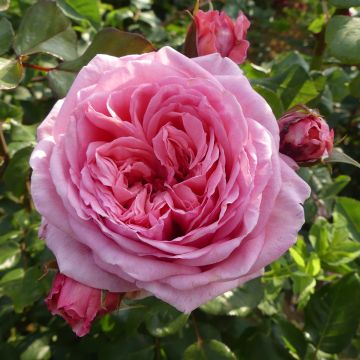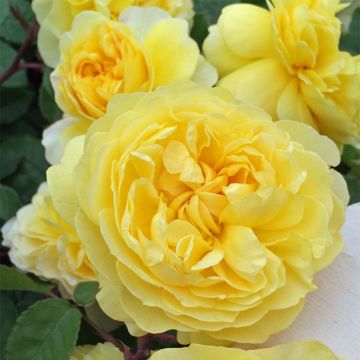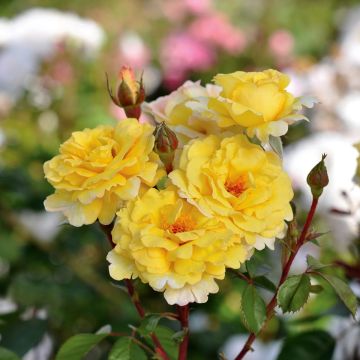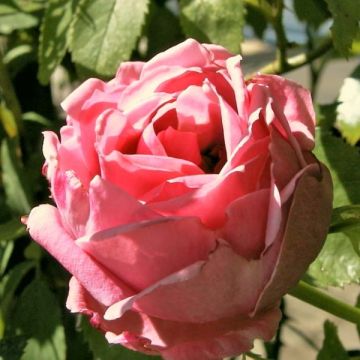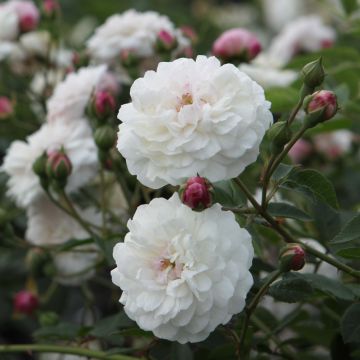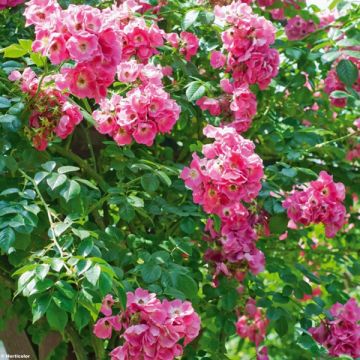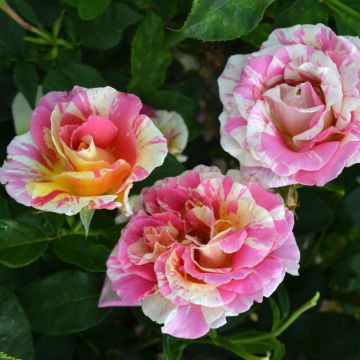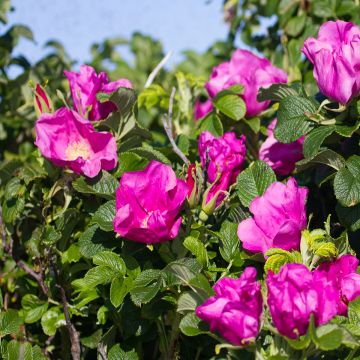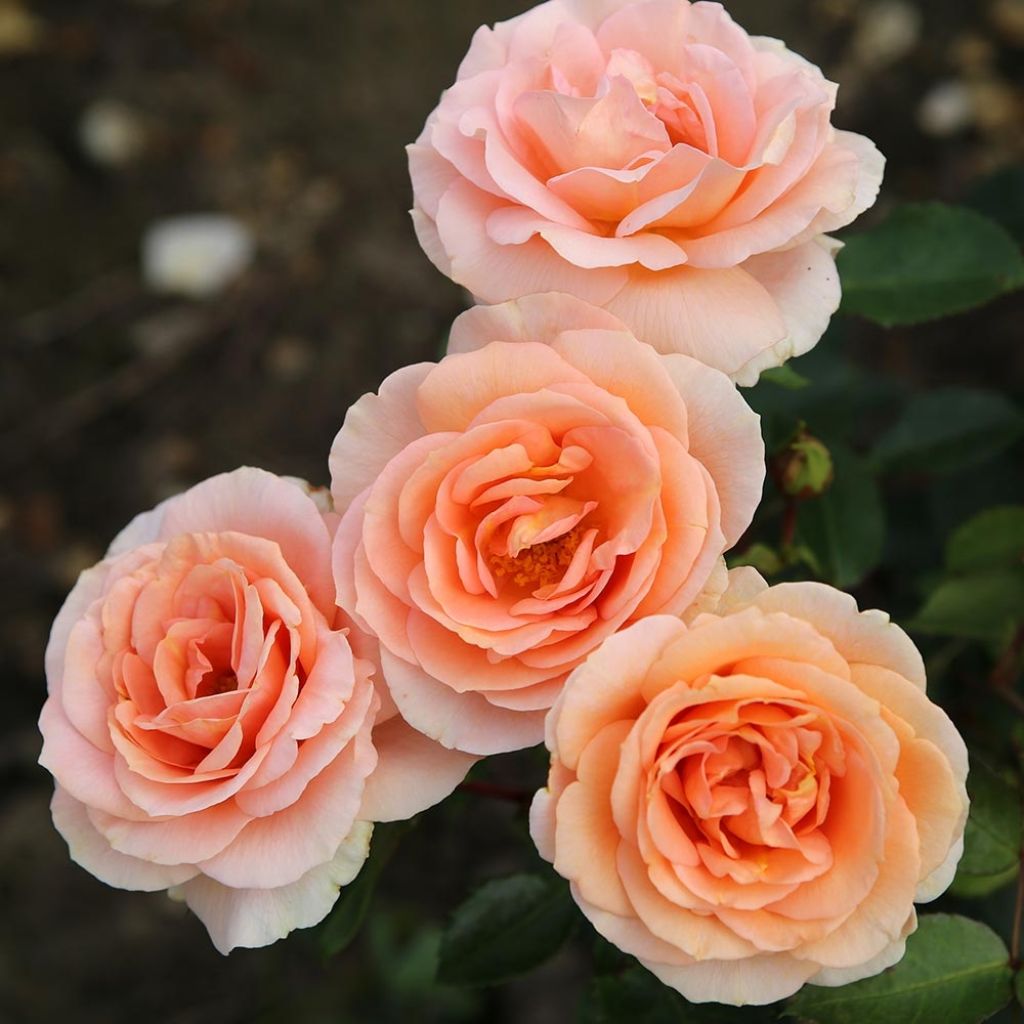

Rosa x Thé - 'Impala' - Patio Rose
View more pictures
Hide images
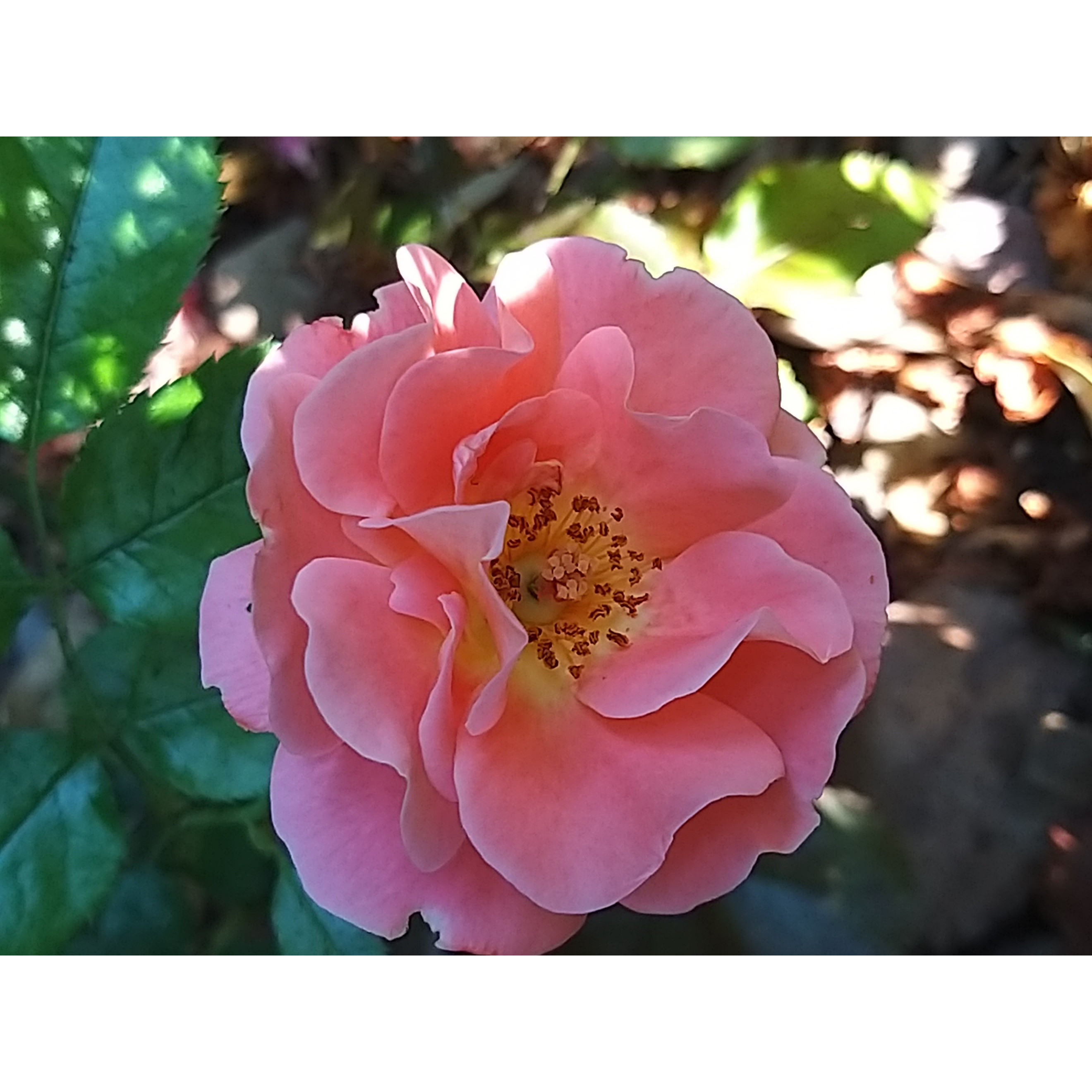
Thierry P.

N/A
Thierry P. • 84 FR
Rosa x Thé - 'Impala' - Patio Rose
Rosa x Thé PATIO ROSE® Impala® KORsternfue
KORsternfue
Planted in August 2022, the rose bush has barely grown and is practically dead. However, I have taken care of it and it was planted according to the recommendations. Nevertheless, it was delivered in poor condition, I would have made a complaint earlier if I had known.
Gregoire, 18/05/2023
Special offer!
Receive a €20 voucher for any order over €90 (excluding delivery costs, credit notes, and plastic-free options)!
1- Add your favorite plants to your cart.
2- Once you have reached €90, confirm your order (you can even choose the delivery date!).
3- As soon as your order is shipped, you will receive an email containing your voucher code, valid for 3 months (90 days).
Your voucher is unique and can only be used once, for any order with a minimum value of €20, excluding delivery costs.
Can be combined with other current offers, non-divisible and non-refundable.
Home or relay delivery (depending on size and destination)
Schedule delivery date,
and select date in basket
This plant carries a 6 months recovery warranty
More information
We guarantee the quality of our plants for a full growing cycle, and will replace at our expense any plant that fails to recover under normal climatic and planting conditions.
Description
The Patio Rose 'Impala' is a lovely creation from Kordes that combines floribundity, charm, and natural resistance to diseases, qualities that have made the reputation of the German rose breeder. This bush is adorned with beautiful, dark green foliage, which serves as a backdrop for well-double roses of perfect form, typical of tea roses, in the colours of dawn. The abundant flowering continues throughout the summer and into autumn on this small bush that received the highly demanding German A.D.R label in 2019. A charming rose that can be appreciated in borders or pots on the balcony. Its flowers are also perfect for romantic bouquets.
The Rosa x floribunda 'Impala' was introduced by rose breeder Kordes Rosen in 2010. It is part of a series of roses, the 'Patio Rose', selected in partnership with 'Globe Planter' for their floribundity and excellent adaptation to pot cultivation. 'Impala' is a hybrid tea rose that has an upright and bushy habit, well-branched. This bush reaches a height of approximately 80 cm (32in) with a spread of 50 cm (20in). Its thorny stems bear dark olive green leaves, divided into five finely toothed leaflets, resistant to diseases. Its flowering is long, repeating in successive waves from May to June to October if the soil remains moist. Enclosed in green sepals, the buds open into well-double roses measuring 6 to 7 cm (2 to 3in) in diameter, gathered in clusters. Their unusual orange colour hovers between soft salmon pink and pastel apricot. The flower's centre is more vibrant, while the periphery is lighter. The foliage is deciduous and falls in autumn.
Bush roses allow for the creation of sumptuous flower beds that bloom for months, whether planted in groups of 3 to 5 plants or mixed, combining colours. They make good companions for phlox and hardy geraniums. This variety 'Impala' pairs well with white or even mauve roses. For example, it can be surrounded by catmints, perennial salvias, and blue, mauve, or white false indigo. It can also be combined with baby's breath, bronze fennel, or lavender. This hardy rose that requires little maintenance will thrive in full sun or partial shade. It will delight all gardeners, whether beginners or experienced.
Report an error about the product description
Rosa x Thé - 'Impala' - Patio Rose in pictures
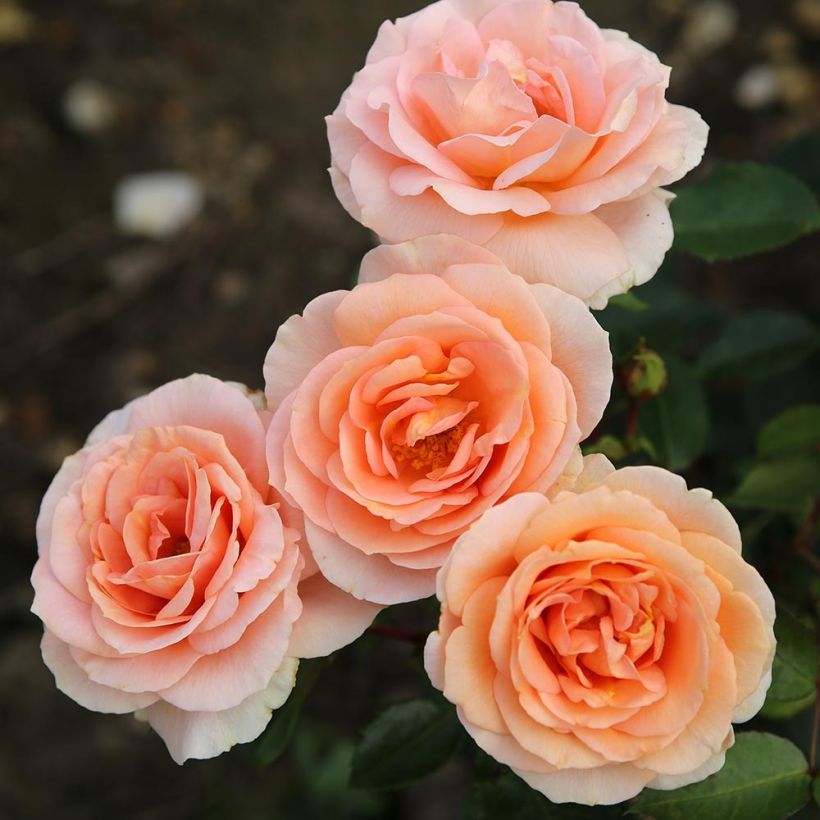

Plant habit
Flowering
Foliage
Botanical data
Rosa
x Thé
PATIO ROSE® Impala® KORsternfue
Rosaceae
KORsternfue
Cultivar or hybrid
Planting and care
To plant an 'Impala' rose, plant it in well-drained soil between November and March. Roses like clay soil, but if the soil is sandy, compact or dry, add compost to the planting hole. Don't plant it in waterlogged soil in winter. Place it in a sunny or partially shaded area. Roses need a lot of nutrients, so use a specific fertiliser at the start of vegetation and throughout the flowering period. To encourage repeat flowering, remove faded flowers regularly. Prune the stems by about one-quarter of their length (from 4 to 6 buds from the base of the stem) in March. Prune above an outward-facing bud so that the bush can fill out and the branches don't become tangled in the centre of the canopy. Floribunda rose varieties are more vigorous and floriferous than large-flowered rose varieties.
Roses may develop unsightly spots at the end of summer, but this is a natural occurrence and doesn't harm the rose's growth.
Planting period
Intended location
Care
-
, onOrder confirmed
Reply from on Promesse de fleurs
Similar products
Haven't found what you were looking for?
Hardiness is the lowest winter temperature a plant can endure without suffering serious damage or even dying. However, hardiness is affected by location (a sheltered area, such as a patio), protection (winter cover) and soil type (hardiness is improved by well-drained soil).

Photo Sharing Terms & Conditions
In order to encourage gardeners to interact and share their experiences, Promesse de fleurs offers various media enabling content to be uploaded onto its Site - in particular via the ‘Photo sharing’ module.
The User agrees to refrain from:
- Posting any content that is illegal, prejudicial, insulting, racist, inciteful to hatred, revisionist, contrary to public decency, that infringes on privacy or on the privacy rights of third parties, in particular the publicity rights of persons and goods, intellectual property rights, or the right to privacy.
- Submitting content on behalf of a third party;
- Impersonate the identity of a third party and/or publish any personal information about a third party;
In general, the User undertakes to refrain from any unethical behaviour.
All Content (in particular text, comments, files, images, photos, videos, creative works, etc.), which may be subject to property or intellectual property rights, image or other private rights, shall remain the property of the User, subject to the limited rights granted by the terms of the licence granted by Promesse de fleurs as stated below. Users are at liberty to publish or not to publish such Content on the Site, notably via the ‘Photo Sharing’ facility, and accept that this Content shall be made public and freely accessible, notably on the Internet.
Users further acknowledge, undertake to have ,and guarantee that they hold all necessary rights and permissions to publish such material on the Site, in particular with regard to the legislation in force pertaining to any privacy, property, intellectual property, image, or contractual rights, or rights of any other nature. By publishing such Content on the Site, Users acknowledge accepting full liability as publishers of the Content within the meaning of the law, and grant Promesse de fleurs, free of charge, an inclusive, worldwide licence for the said Content for the entire duration of its publication, including all reproduction, representation, up/downloading, displaying, performing, transmission, and storage rights.
Users also grant permission for their name to be linked to the Content and accept that this link may not always be made available.
By engaging in posting material, Users consent to their Content becoming automatically accessible on the Internet, in particular on other sites and/or blogs and/or web pages of the Promesse de fleurs site, including in particular social pages and the Promesse de fleurs catalogue.
Users may secure the removal of entrusted content free of charge by issuing a simple request via our contact form.
The flowering period indicated on our website applies to countries and regions located in USDA zone 8 (France, the United Kingdom, Ireland, the Netherlands, etc.)
It will vary according to where you live:
- In zones 9 to 10 (Italy, Spain, Greece, etc.), flowering will occur about 2 to 4 weeks earlier.
- In zones 6 to 7 (Germany, Poland, Slovenia, and lower mountainous regions), flowering will be delayed by 2 to 3 weeks.
- In zone 5 (Central Europe, Scandinavia), blooming will be delayed by 3 to 5 weeks.
In temperate climates, pruning of spring-flowering shrubs (forsythia, spireas, etc.) should be done just after flowering.
Pruning of summer-flowering shrubs (Indian Lilac, Perovskia, etc.) can be done in winter or spring.
In cold regions as well as with frost-sensitive plants, avoid pruning too early when severe frosts may still occur.
The planting period indicated on our website applies to countries and regions located in USDA zone 8 (France, United Kingdom, Ireland, Netherlands).
It will vary according to where you live:
- In Mediterranean zones (Marseille, Madrid, Milan, etc.), autumn and winter are the best planting periods.
- In continental zones (Strasbourg, Munich, Vienna, etc.), delay planting by 2 to 3 weeks in spring and bring it forward by 2 to 4 weeks in autumn.
- In mountainous regions (the Alps, Pyrenees, Carpathians, etc.), it is best to plant in late spring (May-June) or late summer (August-September).
The harvesting period indicated on our website applies to countries and regions in USDA zone 8 (France, England, Ireland, the Netherlands).
In colder areas (Scandinavia, Poland, Austria...) fruit and vegetable harvests are likely to be delayed by 3-4 weeks.
In warmer areas (Italy, Spain, Greece, etc.), harvesting will probably take place earlier, depending on weather conditions.
The sowing periods indicated on our website apply to countries and regions within USDA Zone 8 (France, UK, Ireland, Netherlands).
In colder areas (Scandinavia, Poland, Austria...), delay any outdoor sowing by 3-4 weeks, or sow under glass.
In warmer climes (Italy, Spain, Greece, etc.), bring outdoor sowing forward by a few weeks.






























